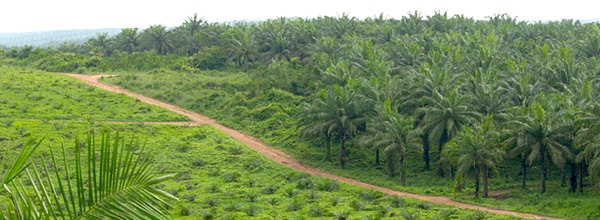
5 Years of sustainable oil palm development agenda pursuit: Tropical Forest Alliance Africa Palm Oil initiative
Oil palm is known to have originated in West Africa. Today, however, the majority of palm oil supply is produced in Indonesia and Malaysia.
While Africa currently accounts for only 3.5 per cent of global supply, Africa presents a new opportunity for large-scale palm oil production.
Advertisement
According to the Roundtable for Sustainable Palm Oil (RSPO), smallholders account for 70 to 90 per cent of oil palm growers in Africa.
However, a number of companies have established plantations and new investors continue to explore opportunities to expand their operations into this region to meet the growing demand.
Companies and countries are aware that expansion is not without risk and needs to be embarked on in a manner that is responsible and sustainable.
Tropical Forest Alliance
The Tropical Forest Alliance (TFA) is a Public Private Partnership (PPP) whose principal goal is to reduce tropical deforestation across the globe.
Its focus is on agricultural commodities, including palm oil, soy, paper and beef products that drive over 50 per cent of deforestation.
The Africa Palm Oil Initiative (APOI) is the first Signature Initiative of the Tropical Forest Alliance. Its goal is to help transition the palm oil sector in West and Central Africa to become a sustainable driver of long-term, low-carbon development in a way that is socially beneficial and protects the tropical forests of the region.
The initiative brings together partners from governments, companies, civil society and community groups from 10 palm oil-producing countries: Cameroun, Central African Republic, Côte d’Ivoire, Democratic Republic of Congo, Gabon, Ghana, Liberia, Nigeria, Republic of Congo and Sierra Leone.
TFA APOI in Ghana
Ghana was one of the first six countries invited to be part of the TFA Action Plan on Oil Palm Development in Africa.
In 2015, the government, through the Ministry of Food and Agriculture (MoFA), gave its full support and endorsement to the initiative.
A core team made up of government, civil society and private sector companies was constituted to drive the TFA APOI process in Ghana.
Each country undertook a consultative process to develop its principles based on the national context, alongside the overarching APOI framework to ensure alignment with a common set of principles.
The Ghana APOI platform started by bringing together key stakeholders to identify the challenges that affected sustainable oil palm production while developing practical principles that would guide sustainable production and expansion of oil palm in Ghana.
As part of efforts towards increasing productivity, the TFA APOI partnered with the MoFA, Solidaridad, Proforest and private sector companies to hold a capacity-building programme to train selected agriculture extension officers in oil palm-growing regions on Best Management Practices (BMP).
Tree Crops Development Authority
Stakeholders identified the absence of a legal and regulatory framework for oil palm as one of the major hindrances to the sector’s sustainable development.
In 2018, the government proposed that a Tree Crops Development Authority be developed based on the MoFA and the country’s industrial policy.
The establishment of the Tree Crops Development Authority (through Act 1010) reflects the importance of managing production supply chains across multiple commodities to reduce the risk of deforestation and associated social issues.
Marrakech declaration/Marrakech+5
Tropical Forest Alliance Marrakesh Declaration for Sustainable Development of the Oil Palm Sector in Africa was signed at the UNFCC’s CoP22 in Marrakesh, Morocco in November 2016.
Signed by governments of palm oil-producing countries in West and Central Africa, the declaration sent a clear message that Africa was open for investment in the oil palm sector, but welcomed investments that complied with the principles of sustainability, transparency and the protection of forests and human rights.
At CoP26 in Glasgow, November 2021, the government supported the proposed expansion of Marrakesh Declaration to incorporate other commodities.
In delivering his address, the Minister of Lands and Natural Resources, Samuel A. Jinapor, stated that the government would continue to create strong linkages between the work already done and the progress of the FACT Dialogues, for which Ghana co-chairs the Support to Smallholders working group, led by the Forestry Commission.
As the government that hosted the event succinctly put it, we can succeed with one farmer at a time. We can progress with one commodity at a time, but we can create more impact and scale by working together across commodities and across borders.
The writer is TFA APOI Ghana National Platform Coordinator




